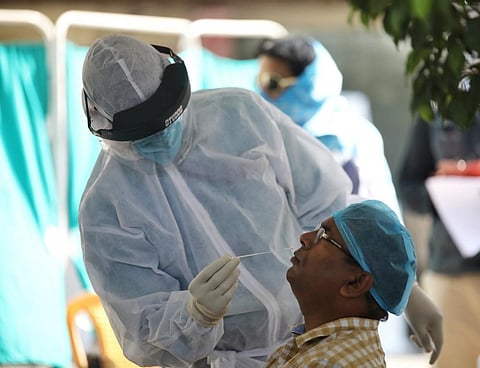A promise of equitable access to all
“There does not appear to be any evidence that intellectual property (IP) is a barrier to access to vital medical preventive measures, such as vaccines, or to treatments or cures. The problem is, rather, that there is, as yet, no vaccine or scientifically proven and approved treatment or cures to have access to.” Thus stated Francis Gurry, director-general of the World Intellectual Property Organization (WIPO), towards the end of April when anxious questions were being raised worldwide about equitable access to equipment, treatment and cures for the SARS-CoV-2 pandemic.
Gurry could not be faulted for the latter part of his statement. There are no proven drugs to treat COVID-19, the disease caused by the SARS-CoV-2 virus. A vaccine is still a long way off. But surely, was Gurry also aware that desperate governments have used and plan to use patented drugs, such as Gilead’s remdesivir and Fujifilm Toyama Chemical Co’s favipiravir to treat COVID-19 patients?
He must also be aware that patents on these drugs are blocking generic companies from mass producing these drugs at affordable prices for the poorest countries. Gurry’s statement was perfectly in character since the WIPO’s brief is to promote IP globally. But it struck a jarring note when other United Nations organisations were focused on a ‘landmark collaboration’ to provide equitable global access to innovative tools for COVID-19.
Put together by a beleaguered World Health Organization (WHO), the initiative — called Access to COVID-19 Tools Accelerator, or ACT Accelerator — brings together the pharma industry, big-ticket donors such as the Wellcome Trust and the Bill and Melinda Gates Foundation, and the World Bank in what could be termed an unusual venture.
For WHO chief Tedros Adhanom Ghebreyesus who has been under attack from the United States, it was a validation with ACT Accelerator getting global backing, notably from the European Union, which has also pledged a substantial funding of 7.5 billion euros. Will it be able to end the shortages, high prices, and curb the tendency of rich nations to corner medicines and equipment as they have done so far?
We can hope so. Should the choice of former Nigerian Minister of Finance Ngozi Okono-Iweala who is a board member of GAVI, the Global Vaccine Alliance, and Andrew Witty, former CEO of GlaxoSmithKline, as special envoys to advance the ACT Accelerator be reassuring? We think so.
But Gurry’s focus is only on “supporting science and innovation that will produce a vaccine, treatments or cures” while ignoring the IP barriers to access. He lists other obstacles: Lack of manufacturing capacity, impediments to the movement of supplies and lack of medical facilities and health workers. These are, indeed, valid issues and WHO does not demur.
However, it maintains “that alongside public health measures, innovative COVID-19 diagnostics, therapeutics and vaccines are needed—in record time and at record scale and access—to save millions of lives and countless trillions of dollars, and to return the world to a sense of ‘normalcy’”. Why is Gurry being so obdurate?
This was first published in Down To Earth’s print edition (dated May 16-31, 2020)


